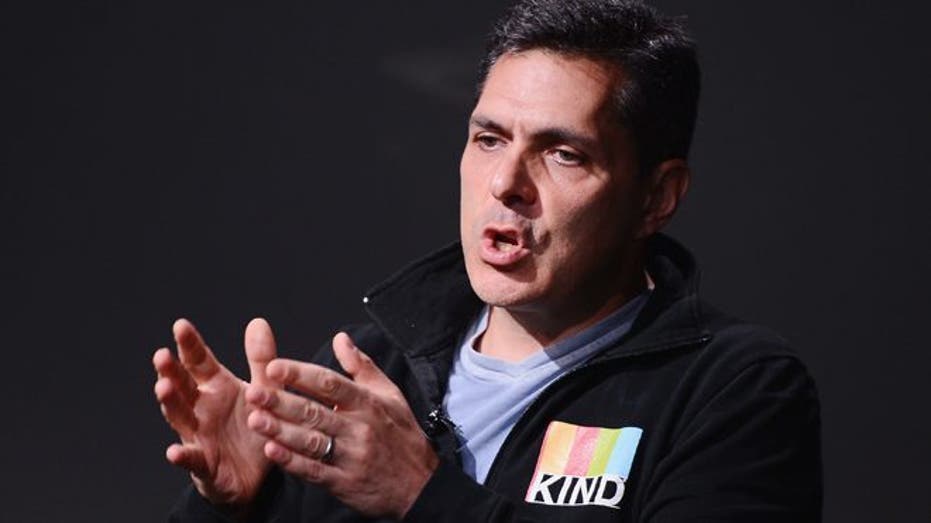Who is the man behind Kind?
The company's name is a tribute to the founder's father, a survivor of the Nazi Holocaust
A childhood magician who studied the law and dreamed of becoming a diplomat, Daniel Lubetzky eventually made his mark on society in an altogether different way: dominating the snack industry with a company that not only focuses on health but social good.
Lubetzky founded KIND in the 2000s, naming it in honor of Lubetzky's father, a Holocaust survivor. He describes it as a not-only-for-profit business with a mission to make the world "a little kinder one snack and act at a time."
CLICK HERE TO READ MORE ON FOX BUSINESS
"I have always seen my role in society as an actor that doesn't just accept things the way they are but changes them to the way they should be," Lubetzky told FOX Business, adding that every venture he pursued was focused on building bridges and connecting people.
His passion comes from his father, whom he credits as both being his best friend and mentor.

KIND founder Daniel Lubetzky attends a discussion at an Apple Store in New York City. (Photo by Stephen Lovekin/Getty Images)
As a child, he heard the excruciating details of his father's experience at the infamous Nazi concentration camp in Dachau, in southern Germany, but also learned of his father's ability to focus on the kindness that people showed him in a time of horror.
Lubetzky's father believed that it was the kindness of strangers -- from the American soldiers who risked their lives to save him or the German soldier who would throw a potato at his feet -- that enabled him to survive.
KIND FOUNDER ON RACIAL INJUSTICE: WE NEED TO LISTEN MORE
Upon being liberated with only a third-grade education, Lubetzky's father emigrated to Mexico, moving his family to San Antonio, Texas, when Lubetzky was a teenager. He later studied economics and international relations at Trinity University in 1990 before graduating from Stanford Law in 1993.
His original goal was to become an American diplomat fostering relations between Arabs and Israelis, but while in law school he became less enthusiastic, deciding he would rather use "business and market forces to foster understanding."
With commerce, "you can create scalable and sustainable impacts much more than in governments or nonprofits," he said. "If you are able to create a business that revolves around uniting people, the more successful you are in your business, the more you are bringing people together."
His initial effort was PeaceWorks, created in 1994, which fostered economic cooperation between neighbors in conflict regions by getting them to work together making Mediterranean dishes called tapenades, which consist of pureed olives, anchovies and capers. The goal, he says, was "to get them to discover each other's humanity."
By 2002, he had founded OneVoice, a global initiative that supports a global initiative to build a grassroots movement for conflict resolution among Israelis and Palestinians.
Lubetzky also pursued a variety of unsuccessful food-related ventures -- which he attributes to an insufficient focus -- in the years before KIND. He did, however, learn a significant amount.
"Food became the playpen to try out the theories from my college thesis and my law school work about how to turn theory into practice of bringing people together," he said.
The premise behind KIND began to germinate in his brain, he said, while working long days unable to find a snack he felt good about eating.
GET FOX BUSINESS ON THE GO BY CLICKING HERE
There were difficult times before it became the success it is today, however, fighting for social change through the KIND movement and its charitable arm, the KIND Foundation.
In 2003, the brand was just coming together when Lubetzky's father passed away. Once it officially launched a year later, he almost had to shut down because of low sales.
He and his crew persevered, though, and three years later, when the company rolled out its Nuts and Spices products, sales began to skyrocket.
What Lubetzky learned along the way was that the biggest mistake entrepreneurs make is trying to be everything to everyone rather than doing one thing really well.
"It's staggering how we almost walked away, we almost threw in the towel," he said.




















